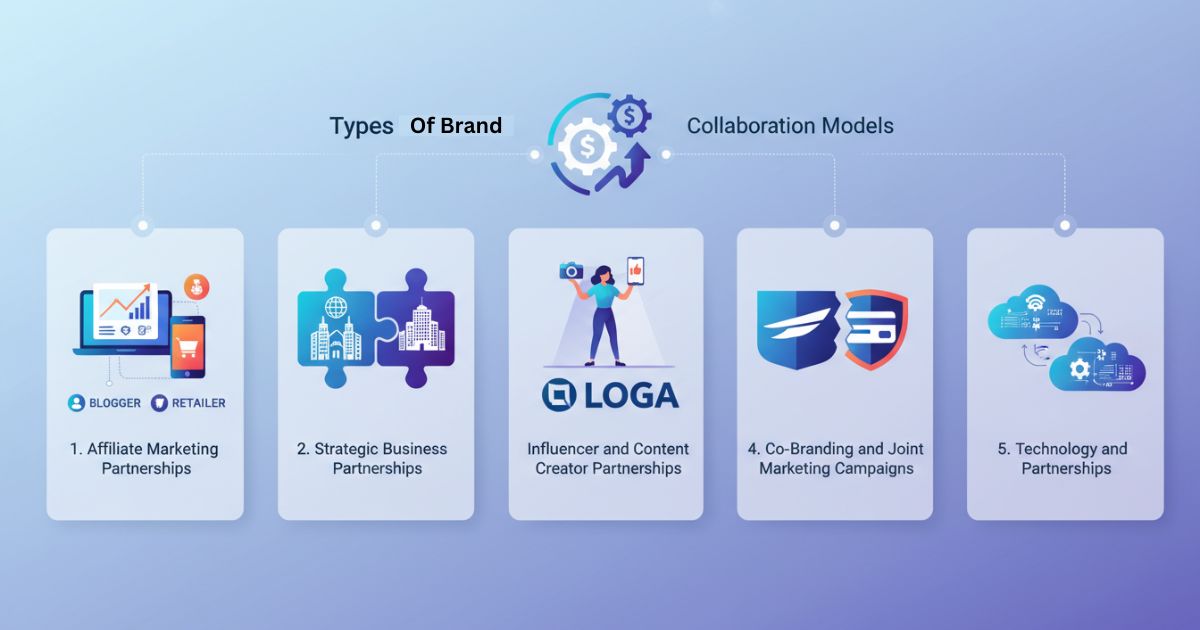The global partnership marketing industry has exploded into a $15 billion ecosystem, fundamentally changing how brands connect with customers worldwide. Companies across all sectors are discovering that strategic brand collaboration can accelerate growth, expand market reach, and create authentic connections with new audiences in ways traditional advertising simply cannot match.
Partnership marketing represents a shift from competing in isolation to thriving through strategic alliances. Whether you’re exploring affiliate marketing channels, seeking acceleration partners for rapid expansion, or building comprehensive collaboration frameworks, understanding the nuances of global partnership marketing has become essential for sustainable business growth.
This guide will walk you through proven marketing strategies, show you how to develop an effective marketing plan, and provide insights into building a career as a partnership manager in this dynamic field.
What is global partner marketing?

Global partner marketing is a partner marketing strategy where brands build brand partnerships with companies in different countries. Instead of managing all promotions alone, businesses work with affiliates, resellers, influencers, and strategic partnerships to grow faster.
This approach supports international expansion by using partners who already understand global markets and local customer needs. These partners help with customer acquisition, brand visibility, and trust building in new regions.
Global partner marketing also reduces marketing costs and business risk. Many companies use affiliate marketing and long-term strategic partnerships to increase revenue and scale operations worldwide. The focus is on shared goals, mutual growth, and sustainable global success.
Why Global Brand Partnership Marketing Matters

Global brand partnership marketing matters because it helps businesses grow efficiently in competitive global markets. Through strong brand partnerships, companies can expand their reach without relying only on traditional advertising channels.
This strategy supports international expansion by working with strategic partners who understand local customer behavior and regional trends. These collaborations improve customer acquisition and reduce the risk of entering new markets.
Global partner marketing also builds trust and credibility. When brands collaborate through affiliate marketing, co-branding, or long-term partner marketing programs, customers feel more confident engaging with new products or services. Overall, global brand partnership marketing drives sustainable growth, increases brand awareness, and creates long-term business value.
Types of Brand Collaboration Models

Brand collaboration can take many forms depending on business goals, market reach, and available resources. Each model plays a different role in a successful partner marketing strategy. Below is a detailed explanation of the most effective brand collaboration models used in global markets.
Affiliate Marketing Partnerships
Affiliate marketing is one of the easiest and most cost-effective forms of brand collaboration. In this model, businesses partner with affiliates who promote products or services through websites, blogs, social media, or email marketing. Affiliates earn a commission for every sale, lead, or action they generate.
This performance-based marketing approach helps companies control costs and reduce financial risk. It is especially effective for customer acquisition and online sales growth. Affiliate marketing also supports international expansion, as global affiliates can promote products in local markets.
Successful affiliate programs rely on strong tracking systems, transparent commission structures, and regular communication. Marketing managers must provide affiliates with promotional assets, clear guidelines, and ongoing support to maintain long-term partner relationships.
Strategic Business Partnerships
Strategic business partnerships involve deeper and more long-term collaboration between brands. These strategic partnerships often include shared resources, joint marketing campaigns, co-developed products, or integrated services. Many technology, finance, and SaaS companies use this model to strengthen their market position.
This collaboration model helps brands enter global markets, improve product value, and increase revenue through shared expertise. Strategic partners often align their goals, target audiences, and business strategies to achieve mutual growth.
A clear marketing plan is critical for success. It should define responsibilities, resource allocation, timelines, and success metrics. Strong alignment and regular performance reviews ensure that both brands benefit equally from the partnership.
Influencer and Content Creator Partnerships
Influencer and content creator partnerships focus on trust, engagement, and authenticity. Brands collaborate with influencers who have established audiences and strong credibility within specific niches. These partnerships support brand awareness, engagement, and targeted customer acquisition.
This brand collaboration model can include sponsored content, product reviews, social media campaigns, or long-term brand ambassador programs. Influencer partnerships are especially effective in digital marketing and social commerce.
Success depends on audience alignment and authentic messaging. Brands should prioritize storytelling and value-driven content instead of aggressive promotion. When done correctly, influencer marketing strengthens brand credibility and supports long-term partner marketing programs.
Co-Branding and Joint Marketing Campaigns
Co-branding partnerships involve two or more brands working together on a shared product, service, or campaign. These collaborations combine brand strengths to create higher perceived value for customers. Co-branding is often used to boost brand visibility and enter new customer segments.
Joint marketing campaigns help reduce marketing costs while increasing reach. They are effective for product launches, seasonal promotions, and market entry strategies. Clear brand guidelines and consistent messaging are essential for success.
Technology and Integration Partnerships
Technology partnerships focus on integrating products, platforms, or services to create better customer experiences. These partnerships are common in software, fintech, and e-commerce industries. They support business growth, product innovation, and customer retention.
By offering integrated solutions, brands increase value and improve customer satisfaction. These partnerships also strengthen long-term relationships and support scalable global partner marketing strategies.
Building Effective Marketing Strategies for Partnerships

Market Research and Partner Identification
Successful partnership marketing begins with thorough market analysis. Identify companies whose audiences overlap with yours but whose products or services complement rather than compete with your offerings. Acceleration partners—organizations that can rapidly expand your reach—often emerge from unexpected industries.
Research potential partners’ reputation, financial stability, and alignment with your brand values. A partnership with a company facing legal troubles or ethical issues can damage your brand reputation regardless of short-term benefits.
Developing Partnership Frameworks
Create standardized processes for evaluating, onboarding, and managing partnerships. This framework should include legal considerations, performance metrics, communication protocols, and termination procedures.
Your marketing plan should outline specific gals for each partnership type. Affiliate marketing might focus on conversion rates and customer acquisition costs, while strategic partnerships might emphasize market expansion and revenue growth.
Performance Measurement and Optimization
Establish clear metrics before launching any partnership initiative. Common performance indicators include:
- Customer acquisition cost through partnership channels
- Revenue generated from collaborative efforts
- Brand awareness lift in target markets
- Customer lifetime value from partnership-acquired customers
Regular performance reviews allow for strategy optimization and relationship strengthening. Marketing managers should schedule quarterly assessments to evaluate partnership effectiveness and identify improvement opportunities.
Career Opportunities: Partnership Manager Resume Essentials
The growing partnership marketing industry creates numerous career opportunities for marketing professionals. A strong partnership manager resume should highlight both strategic thinking and relationship management skills.
Essential Skills and Qualifications
Partnership managers need a unique combination of analytical and interpersonal abilities. Technical skills include data analysis, project management, and marketing automation platforms. Soft skills encompass negotiation, communication, and cultural sensitivity for global partnerships.
Educational backgrounds vary widely in this field. Partnership Marketing manager roles often require business degrees, but experience and demonstrated results frequently matter more than formal credentials.
Building Relevant Experience
Entry-level marketing professionals can gain partnership experience through affiliate program management, influencer outreach, or cross-promotional campaigns. Volunteer work with nonprofit organizations often provides valuable partnership experience while building professional networks.
Document specific achievements on your partnership manager resume. Quantify results whenever possible: “Managed affiliate program generating $2.3M annual revenue through 150+ active partners” demonstrates concrete value creation.
Creating Your Global Partnership Marketing Plan
Strategic Planning Process
Start with clear objectives aligned with overall business goals. Your marketing plan should specify target markets, desired partnership types, resource allocation, and timeline expectations. Consider both short-term tactical partnerships and long-term strategic alliances.
Conduct competitive analysis to understand how industry leaders approach partnership marketing. Identify gaps in current partnership ecosystems that your company could fill through innovative collaboration models.
Implementation and Management
Successful implementation requires dedicated resources and clear accountability. Assign specific team members to manage different partnership categories, ensuring consistent communication and relationship development.
Develop standardized onboarding processes for new partners. This might include training materials, brand guidelines, marketing assets, and performance expectations. Consistent onboarding improves partnership success rates and reduces management overhead.
Scaling Across Global Markets
International expansion through partnerships requires cultural sensitivity and local market knowledge. Acceleration partners in new geographic regions provide invaluable insights into consumer behaviour, regulatory requirements, and competitive landscapes.
Consider partnering with local marketing agencies or consultants who understand regional nuances. These relationships can prevent costly mistakes while accelerating market entry timelines.
Maximizing Partnership Marketing Success
Global brand partnership marketing represents a fundamental shift toward collaborative growth strategies. Companies that master these approaches gain competitive advantages through expanded reach, shared resources, and authentic audience connections.
Success requires strategic thinking, systematic implementation, and ongoing relationship management. Whether you’re developing affiliate marketing programs, seeking acceleration partners for rapid expansion, or building a career as a partnership manager, focus on creating genuine value for all stakeholders.
The partnership marketing landscape will continue evolving as new technologies and platforms emerge. Companies that build flexible partnership frameworks and maintain strong relationship management practices will thrive in this collaborative economy.
Start by identifying one potential partnership opportunity that aligns with your business objectives. Develop a pilot program with clear success metrics, then scale successful models across your organization. The partnerships you build today will define your competitive position in tomorrow’s global marketplace.
FAQs
What is global brand partnership marketing?
Global brand partnership marketing is a strategy where two or more companies collaborate across markets to share audiences, resources, and expertise. These partnerships help brands expand internationally, reduce marketing costs, and build authentic customer relationships through mutual value creation.
How is partnership marketing different from traditional advertising?
Unlike traditional advertising, which relies on paid media placements, partnership marketing focuses on long-term collaboration. It leverages trust, shared audiences, and co-created value, making it more cost-effective and often more credible to consumers.
What are the most common types of brand partnerships?
The most common brand partnership models include affiliate marketing partnerships, strategic business alliances, influencer and content creator collaborations, and co-branded product or service partnerships. Each model serves different business goals and growth stages.
How do you choose the right brand partner?
The right brand partner should share similar values, have a complementary audience, and offer clear mutual benefits. Businesses should also evaluate reputation, market position, financial stability, and long-term strategic alignment before forming a partnership.
What metrics are used to measure partnership marketing success?
Partnership marketing success is typically measured using customer acquisition cost, revenue generated, conversion rates, brand awareness lift, and customer lifetime value. Clear KPIs should be defined before launching any partnership campaign.
What skills are needed to become a partnership marketing manager?
A partnership marketing manager needs strong relationship-building, negotiation, and communication skills, along with data analysis, strategic planning, and project management abilities. Experience managing affiliates, influencers, or strategic alliances is highly valuable.




